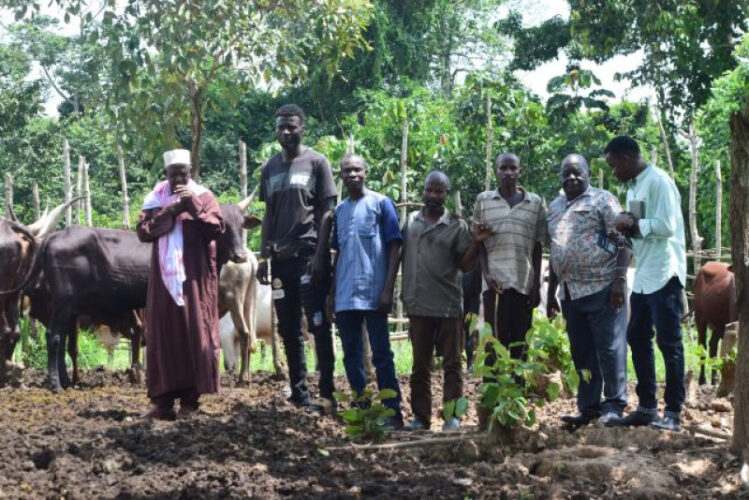For over a decade, National Farmers’ Organizations (NFOs) in Central Africa have benefited from structured support aimed at enhancing their economic viability and integration into agricultural value chains. Within this dynamic, Local Support Frameworks (LSFs) play a crucial role by providing strategic and technical assistance to NFOs affiliated with PROPAC, particularly within the framework of the FO4ACP (Farmers’ Organizations for Africa, Caribbean, and Pacific) program.
From PAOPA to FO4ACP: The Emergence of a Structuring Mechanism
The LSFs originated from the Support Program for Farmers’ Organizations in Africa. During its first phase (2009–2013), the focus was on institutional strengthening and advocacy. However, starting from the second phase (2013–2018), the program expanded its scope to include economic services for members, necessitating the implementation of specialized human support.
With Component 3 of Farmers’ Organizations in Africa, the need to support the development of economic activities within NFOs became evident, leading to concrete actions such as:
-
Designing business plans tailored to local realities
-
Financing economic microprojects
-
Facilitating interactions between producers and buyers
-
Mapping financial and technical opportunities
In this context, Local Support Frameworks were deployed to structure the support provided to NFOs, offering them the necessary tools and strategies for their economic growth.
The Role of Local Support Frameworks in FO4ACP
Within the FO4ACP program, which aims to strengthen the resilience and competitiveness of Farmers’ Organizations, LSFs operate across several strategic areas:
Development of Economic Services for NFOs
LSFs assist NFOs in structuring and professionalizing their economic services, including:
-
Developing business plans aligned with market demands
-
Mapping funding sources and seeking financing opportunities
-
Organizing B2B meetings to enhance commercial opportunities
-
Mediating between buyers and suppliers to secure sustainable outlets
-
Monitoring and assisting in responding to project calls
Monitoring and Support of Economic Microprojects
LSFs ensure the effective implementation of economic services by:
-
Collecting and analyzing economic data to guide strategic decisions
-
Assisting in contract management and procurement processes
-
Coaching NFO leaders to strengthen their management capacities
-
Capitalizing on and managing knowledge to share best practices
Challenges and Future Perspectives for Local Support Frameworks
After a decade of implementation, several challenges remain to ensure the continuous improvement of the LSF mechanism:
-
Sustainable Financing: How to guarantee the continuity of LSFs beyond initial funding?
-
Optimization of Monitoring and Evaluation: How to better measure the impact of economic services on NFOs and their members?
-
Continuous Training of LSFs: What skills need to be enhanced to meet evolving market demands?
Conclusion: A Catalyst for Agricultural Transformation
Local Support Frameworks are now indispensable for structuring and developing the economic services of NFOs affiliated with PROPAC. Their actions enhance access to financing, improve the competitiveness of farmers’ organizations, and strengthen their integration into agricultural value chains.
The future of LSFs depends on improved regional coordination, a sustainable financing framework, and the continuous adaptation of economic strategies. By consolidating their efforts, these frameworks can fully contribute to the transformation of the agricultural sector in Central Africa.
Article from PROPAC’s website

